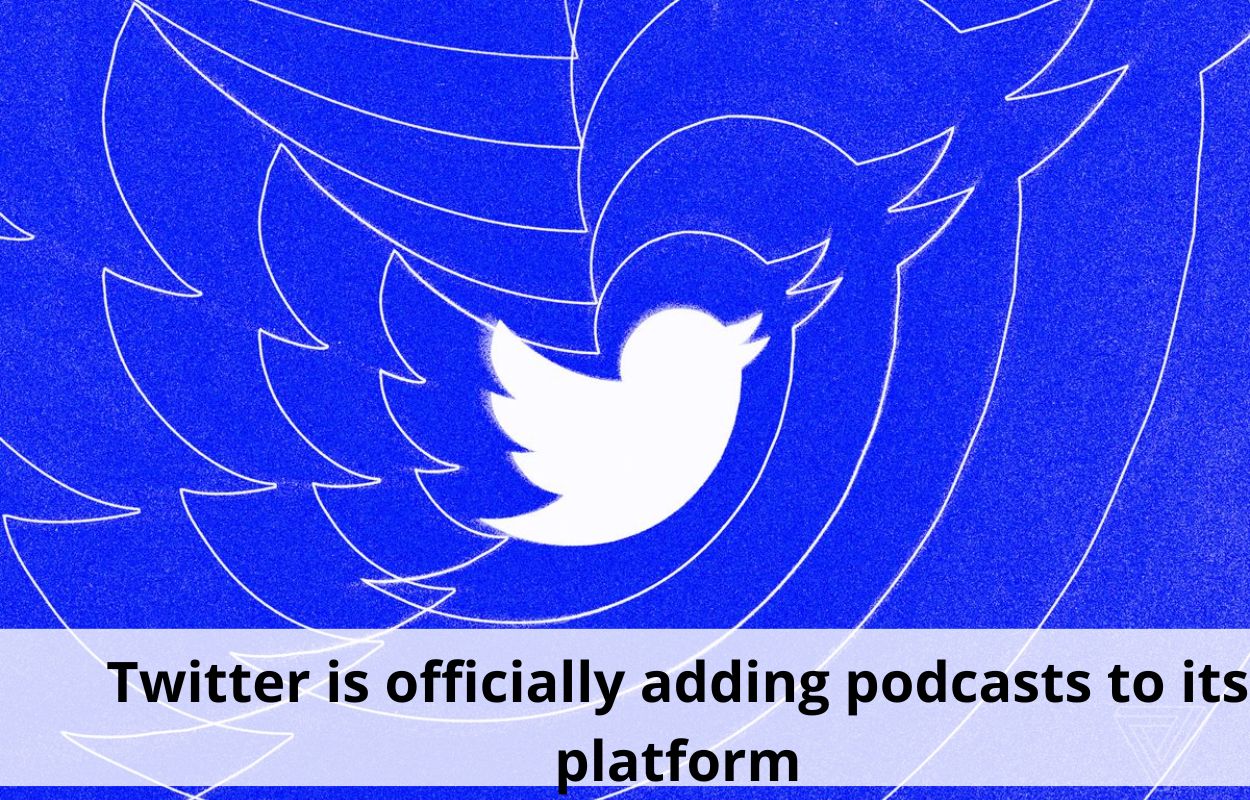Twitter is formally entering the podcast industry. Today, the social network made the announcement that it will incorporate podcasts into its platform as part of the revamped Spaces tab. Starting today, a group of English-speaking users worldwide can access the updated Spaces tab and the podcast addition on iOS and Android.
The revamp introduces user-specific “Stations” that compile material based on a variety of categories, including news, music, sports, and more. Your recommended reading will be based on the topics and influencers you follow. Now, Twitter users may access a tailored collection of recorded and live Spaces. The most well-liked podcasts from around the globe will also be featured on the hubs. To let Twitter know if a podcast’s content interests you, you can rate it with a thumbs up or down after discovering it.
There are three sections when you first click the Spaces Tab. You can listen to various themes and Topics through the Stations, which are shown at the top of the page and scroll horizontally. You will see Spaces highlighted below that, which features a selection of the best selected audio material. Finally, a list of future Spaces will be displayed.
Given that the social network has been seen testing a podcast component for the past few months, today’s announcement shouldn’t come as much of a surprise. Initial tests, however, suggested that Twitter was working on a specific podcasts tab; nevertheless, today’s introduction demonstrates that Twitter is more interested in integrating podcasts into Spaces than in giving them their own space on the platform. Twitter is creating audio stations and a customized audio digest, according to a prior TechCrunch article.
Twitter stated in a blog post that adding podcasts to Spaces, where audio interactions take place, is another way the company is supporting audio creators. “We started with a revamped audio experience in the Spaces Tab to deliver this in a simple and intuitive way that allows listeners to just push play and go,” the statement reads.
In order to help users find material based on their interests, Twitter will now automatically suggest podcasts. According to internal data, 45% of Twitter users in the U.S. who utilize the service do so on a monthly basis.
When asked if Twitter has a timeframe for the larger rollout or desktop launch of podcasts, a representative for the social network responded to TechCrunch that the business will gather feedback on the initial test and develop the functionality soon.
Twitter is officially adding podcasts to its platform: https://t.co/klpzyVC8zJ via @TechCrunch #Podcast cc. @ErikThurnherr @pokipsie pic.twitter.com/NX0oRNUlD6
— Markus Peter (@MarkusPeter) August 26, 2022
By giving consumers even more audio content to listen to, Twitter claims that the addition of podcasts is part of its efforts to offer users an “all-in-one, personalized audio destination.”
The introduction of Twitter’s podcast service coincides with Meta’s Facebook’s recent shutdown of its podcast program, which was only in operation for about a year. Additionally, the corporation stopped offering its Audio hub and a short-form audio product called Soundbites. The shift occurred at the same time as TikTok, another well-known short-form video app, was reportedly intensifying its competition with Meta by giving short-video projects priority over other ventures.
Given Facebook’s decision to stop producing podcasts, Twitter’s entry into the audio medium could give it a competitive advantage over other social media platforms if it can grow them effectively.
Read More:
It’s important to note that Peiter “Mudge” Zatko, the former director of security at Twitter, recently said that Spaces lacks sufficient moderation. In an explosive whistleblower complaint, Zatko made the assertion. In December 2021, a Twitter executive allegedly misled the company’s staff and board members by claiming that the feature was being properly moderated. However, according to Zatko, he later learned that “about half of Spaces content flagged for review was in a language that the moderators did not speak, and there was little to no moderation happening.”
